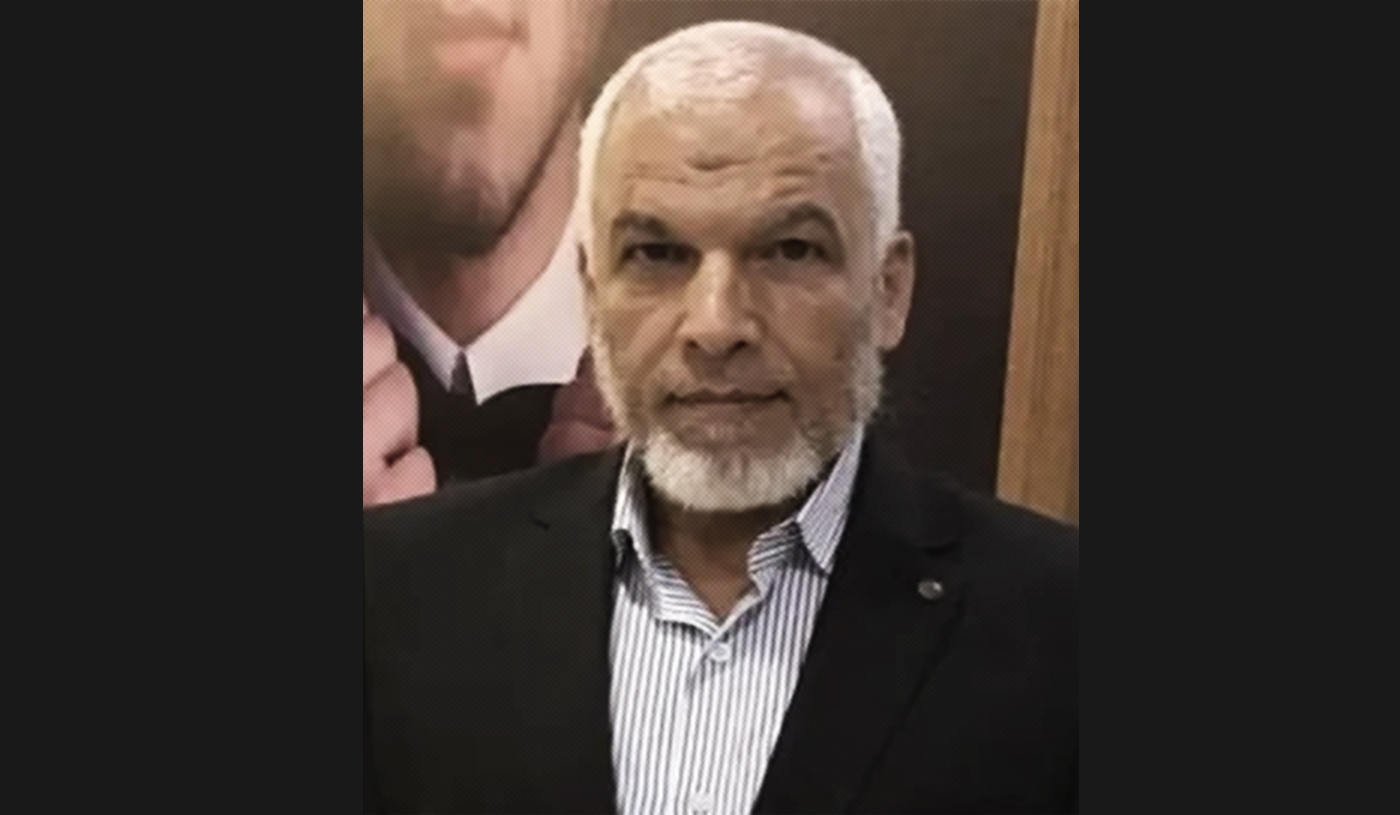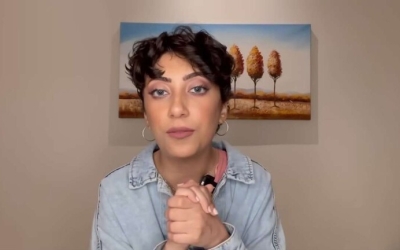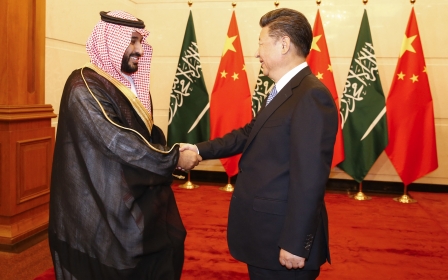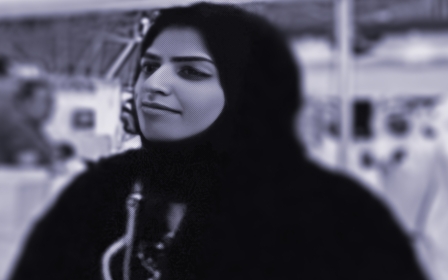Saudi Arabia: Egyptian doctor sentenced to 20 years in prison for allegedly voting for Morsi

An Egyptian doctor who is a former employee at the Saudi health ministry was sentenced to 20 years in prison in Saudi Arabia on Monday, on charges of supporting the Muslim Brotherhood, a rights group said.
According to the Egyptian Commission for Rights and Freedoms (ECRF), the Specialised Criminal Court in Riyadh - which hears cases related to terrorism - handed the sentence to the Egyptian physician, Sabri Massad Ibrahim Shalaby, who has been detained since January 2020.
The Saudi authorities must 'immediately and unconditionally release' Shalaby
- ECRF and GCHR
The evidence brought against Shalaby was a testimony given by a fellow prisoner who alleged that he voted for the late President Mohamed Morsi in the 2012 Egyptian presidential election.
Morsi was a leading member of the Muslim Brotherhood, a group outlawed as a “terrorist organisation” by Saudi Arabia and Egypt following the coup against Morsi in 2013, led by then-defence minister Abdel Fattah el-Sisi, who is now president.
Human Rights Watch criticised Egypt’s designation of the Muslim Brotherhood as a terrorist group in 2013, dismissing it as "politically driven" and "aimed at expanding a crackdown on the Brotherhood’s peaceful activities".
New MEE newsletter: Jerusalem Dispatch
Sign up to get the latest insights and analysis on Israel-Palestine, alongside Turkey Unpacked and other MEE newsletters
Shalaby, however, has denied the charges, and rights groups who documented his case have ruled out the possibility of his ability to vote in the 2012 election, given his location at the time.
The ECRF, in a joint statement with the Gulf Centre for Human Rights, has previously suggested the timing of the arrest was related to a verdict on a lawsuit he filed against the Saudi health ministry to pay him financial dues.
Prior to his arrest, Shalaby worked for the Saudi health ministry from 2006 until the end of 2019, but 10 years after his work, he discovered that he had been registered on the ministry’s system with a job title lower than his actual one.
The doctor filed a lawsuit before a Saudi court in 2017, which lasted for two years. In the end, a verdict was passed in his favour in 2019 and a ruling was issued to settle his salary retroactively since the initiation of the contract.
But the ministry appealed the ruling and arbitrarily terminated his contract, issuing him a final exit visa. As a result, Shalaby booked tickets to return to Egypt after the date of the appeal hearing.
Two weeks before the date of the session, on 28 January 2020, he was arrested by a group that identified itself as a security agency affiliated with the General Directorate of Investigations in Tabuk City.
When his wife, who lived with him, inquired about the reason for his arrest, they answered that it was only to “ask him a few questions and he will be brought back right away”, according to the ECRF. However, her passport was also confiscated and was not returned to her until about a week later.
Upon his arrest, all of his personal devices - including his laptop, two mobile phones, and 13 memory sticks - in addition to all of his medical books, were confiscated.
“His belongings contained no political content, whether electronically or among his books, and he does not have any social media accounts or email,” the ECRF said in a joint statement with the Gulf Centre for Human Rights.
When his family initially tried to inquire about his whereabouts, they did not receive any response from the authorities. The first telephone contact with the family took place four days after his arrest, the two rights groups said. He told them he was being held in the General Investigation Prison in Tabuk. Two weeks later, he was transferred to Dhahban Prison in Jeddah.
Shalaby was held in solitary confinement for nine months until October 2020. During that period, Shalaby went on hunger strike, demanding to communicate with his family in Egypt and be transferred from solitary confinement. He was later transferred to the prison hospital for health reasons.
Shalaby’s family contacted the Egyptian consulate in Jeddah to intervene to help him for nearly one year after his detention, but never received a response.
No evidence for Brotherhood support
In March 2021, in the first hearing before the Specialised Criminal Court in Riyadh, the Public Prosecution presented the indictment and charged him with supporting the Muslim Brotherhood. The trial was postponed until June 2021.
In the June 2021 hearing, the Specialised Criminal Court requested the Public Prosecution to present evidence for the indictment. Shalaby’s family received the evidence related to the charges embedded in the indictment, which was submitted by the Public Prosecution, through the court during this session.
The court held the third hearing on 21 October 2021, to hear the defence. The response was submitted to the court during the hearing and there were no pleadings or questions from the judge. Shalaby told the court during this hearing: “I have given detailed responses and produced evidence that refute all the allegations of the Public Prosecution and exonerate me of the charges brought against me.”
After submitting the responses, Shalaby remained in custody for almost a year without being brought before court.
The ECRF and the Gulf Centre for Human Rights said that prior to his arrest, Shalaby had been suffering from several illnesses and had undergone a delicate spinal surgery. He has asthma and a few months prior to his arrest was diagnosed with diabetes, which caused cataracts.
According to his family, who met with him on 7 August, Shalaby has lost weight and has back pain. He had requested that the prison administration refer him to an external hospital where a specialist in neurology can attend to him, even at his own expense. But the request has not been approved as of yet.
“Throughout his life, Dr Shalaby has not been involved in any political activities and he has not even voted in any presidential or parliamentary elections over the past years because of his indifference to politics,” the two rights groups said. “This is officially documented by the Egyptian Embassy in the Kingdom of Saudi Arabia and its consulate in Jeddah, where he resided during these elections.”
Shalaby was charged with “supporting a terrorist group” and the evidence presented by the Public Prosecution is based on a testimony given by another detainee, who used to work with him at Al-Wajh Hospital in Tabuk. ECRF and the GCHR said the testimony was “incorrect and inaccurate”.
When the detainee was asked about others who adopted his ideology at work, he stated that Shalaby was sympathetic to the Brotherhood and had voted for Morsi in the Egyptian presidential election of 2012.
“This statement is incorrect, and cannot be ascertained considering the circumstances that the detainee was facing when giving this statement, and no fair judiciary can use it to set up an innocent person who was never involved in political affairs,” the statement added.
“The defence’s response was decisive and clearly evidenced, as it confirmed that Dr Shalaby was doing his work at Al-Wajh Hospital in the Tabuk region, while voting took place at the Egyptian consulates in Jeddah and the capital, Riyadh,” the statement said.
The ECHR and GCHR called on Saudi authorities to “immediately and unconditionally release” Shalaby, drop all charges against him, and allow him to return to Egypt after settling all his financial dues.
Middle East Eye delivers independent and unrivalled coverage and analysis of the Middle East, North Africa and beyond. To learn more about republishing this content and the associated fees, please fill out this form. More about MEE can be found here.





